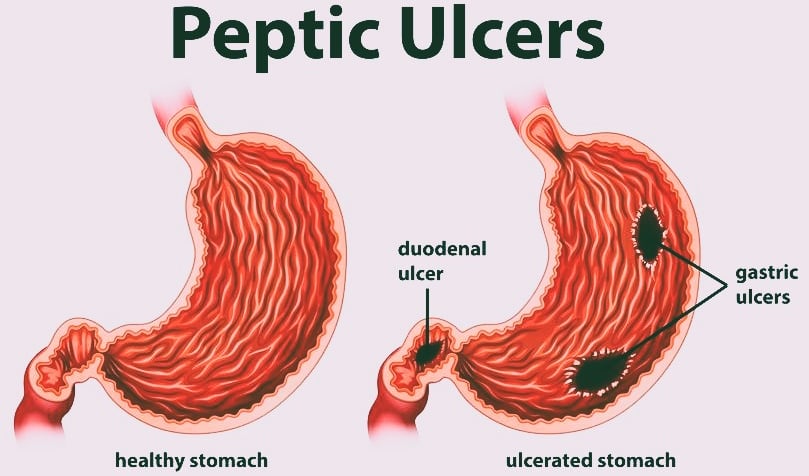Understanding Peptic Ulcers: Causes, Symptoms, and Treatment
Explore peptic ulcers: their causes, symptoms, and effective treatments. Learn how to manage and improve your digestive health with expert guidance. #PepticUlcers


Introduction
Peptic ulcers are painful sores that develop in the lining of the stomach, upper small intestine, or esophagus. These ulcers can cause discomfort, pain, and complications if left untreated. In this article, we will explore the causes, symptoms, and treatment options for peptic ulcers.
Causes of Peptic Ulcers
Peptic ulcers are primarily caused by the presence of the bacterium Helicobacter pylori (H. pylori) in the stomach. This bacterium weakens the protective lining of the stomach and duodenum, allowing stomach acid to damage the tissues. Other factors that can contribute to the development of peptic ulcers include:
Regular use of nonsteroidal anti-inflammatory drugs (NSAIDs) such as aspirin or ibuprofen
Excessive alcohol consumption
Smoking
Stress
Family history of peptic ulcers
Symptoms of Peptic Ulcers
The symptoms of peptic ulcers can vary from person to person. Some common signs and symptoms include:
Burning or gnawing pain in the abdomen, usually between the breastbone and navel
Feeling of fullness or bloating
Nausea or vomiting
Loss of appetite
Unexplained weight loss
Dark or black stools (indicating bleeding)
Treatment Options
The treatment for peptic ulcers aims to relieve symptoms, promote healing, and prevent complications. The most common treatment options include:
Antibiotics: If H. pylori infection is detected, a combination of antibiotics is prescribed to eradicate the bacteria.
Proton pump inhibitors (PPIs): These medications reduce the production of stomach acid, allowing the ulcer to heal.
H2 blockers: These medications also reduce stomach acid production and promote healing.
Antacids: Over-the-counter antacids can provide temporary relief by neutralizing stomach acid.
Lifestyle changes: Quitting smoking, avoiding alcohol and NSAIDs, managing stress, and adopting a healthy diet can help prevent ulcers from recurring.
Conclusion
Peptic ulcers can cause significant discomfort and complications if left untreated. It is essential to understand the causes and symptoms to seek appropriate medical attention. With the right treatment, including antibiotics, acid-reducing medications, and lifestyle changes, peptic ulcers can be effectively managed and healed. If you suspect you may have a peptic ulcer, consult a healthcare professional for an accurate diagnosis and personalized treatment plan.
